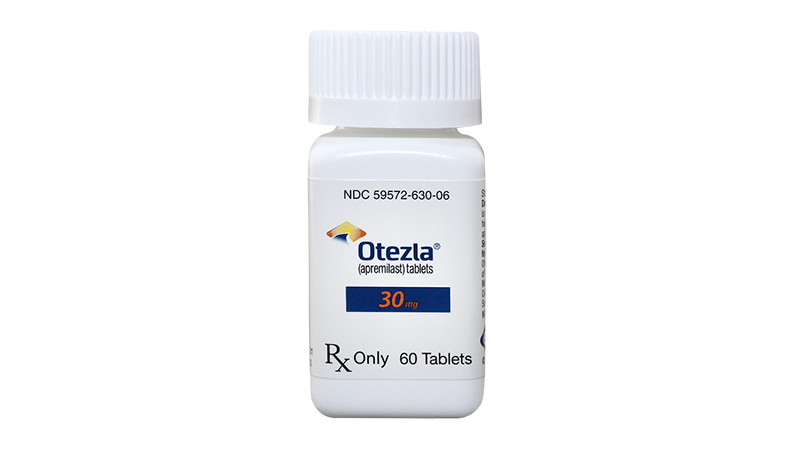Celgene gets new approval for soon-to-be-shed Otezla

Celgene has picked up a third approval for its anti-inflammatory drug Otezla, although it won’t reap much commercial benefit from it.
Otezla (apremilast)—an oral PDE4 inhibitor—has been cleared by the FDA for the treatment of adult patients with mucositis (mouth ulcers) associated with Behçet’s disease, a rare disorder that causes blood vessel inflammation throughout the body.
The drug is the first to be approved for this use in the US, providing a treatment option for the five in 100,000 Americans with Behçet’s, many of whom develop mouth ulcers as a result of the condition. Oral ulcers can be disabling and have a substantial effect on quality of life, says Celgene.
Otezla is an important product for Celgene, bringing in $1.6 billion in sales last year from its current indications of psoriasis approved in 2014 – as well as psoriatic arthritis. However, it has already been earmarked for divestment in order to sidestep antitrust issues related to the company’s $74 billion takeover by Bristol-Myers Squibb.
BMS said it had agreed to hive off Otezla to try to bring the Celgene takeover to fruition after months of delay, with the deal now expected to complete towards the end of his year or possibly into early 2020. The two companies have been working to bring the deal to a close since January, but have faced problems including an investor revolt that for a while threatened to derail the process.
The new indication will give Otezla’s new owner an additional sales kick, with the drug already growing at a healthy 26% rate last year thanks to rising demand and launch in a number of new international markets, including Japan.
Celgene has been trying to expand the reach of Otezla in a range of new indications given the increasingly competitive psoriasis market, and last year also reported positive results in scalp psoriasis, which is difficult to treat using topical therapies. Other trials are ongoing in paediatric, mild-to-moderate, and genital forms of psoriasis.
Approval in Behçet’s comes on the back of the phase 3 RELIEF study in 207 patients who had previously been treated with at least one nonbiologic drug. Currently people with the rare disease have to be treated with corticosteroids, immunosuppressant drugs or biological therapies including TNF inhibitor antibodies.
Celgene’s drug reduced the incidence of oral ulcers over the course of 12 weeks, with significant improvements in key secondary endpoints, including oral ulcer pain, overall disease activity and quality of life.
Topical corticosteroids, and particularly creams, lozenges, mouthwashes and sprays, are usually the first treatment recommended for mouth ulcers.
A generic rival to Otezla from Amneal Pharma was given tentative approval by the FDA last week, but Celgene reckons it has US patent protection out to 2028.












